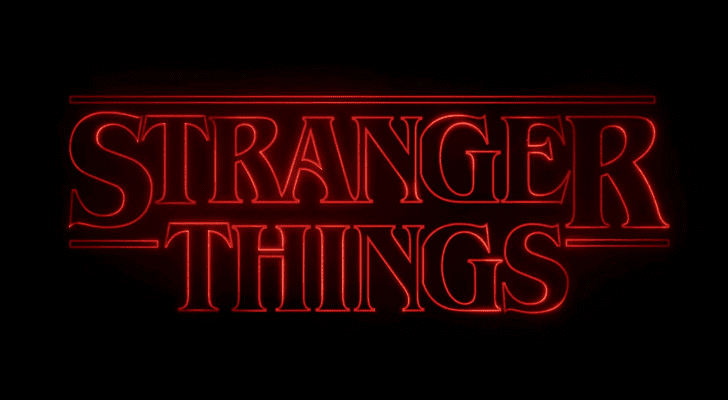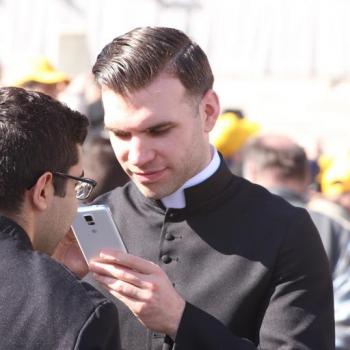
I don’t really watch much television. The internet allows so much freedom to watch whatever I feel like, yet I find myself to be extremely bored with cable TV and online streaming. It often feels like the more choices there are, the less there is to watch. I know, it’s a strange paradox! However, after hearing about the reception over the Netflix original series Stranger Things, I decided I had to give this show a chance.
And sure enough, I was hooked after watching the first episode.
I can honestly say, there are very few television shows that captivate me enough to become a dedicated viewer, or even a fanboy. Seeing the countless throwbacks to the era I was born in was a sight to behold – from the ridiculous hairstyles, foreboding synth music, arcade games, Eggo waffles, rotary phones to the wood-grain wall paneling that lined peoples homes. The attention to detail by the Duffer Brothers throughout the series is enough for the unknowing viewer to believe the show was actually made in the 80’s!
But aside from the nostalgic nerd-service, what is it about Stranger Things that captivates it’s audience?
I’ll do my best not to reveal any spoilers, but I think some of the most thrilling and terrifying stories revolve around two things: metaphysical happenings and children.
Stranger Things draws plenty of inspiration from memorable 80’s films such as E.T.: The Extra-Terrestrial, Close Encounters of the Third Kind, Gremlins, The Goonies, Stephen King’s ‘IT’ and The Exorcist. Like these films, Stranger Things contains protagonist characters who happen to be of an adolescent age, and are subject to unknown dangers in the plot of every story. The Duffer Brothers manifested that same storytelling element that amplifies the worst fears in parents and children alike — by setting them in a world that isn’t safe from evil.
For those of us who have children of our own, our biggest fears revolve around the safety and well-being of our kids. Anytime someone’s child goes missing, even for a short amount of time, our minds go ballistic. When you hear of awful things that happen to other people’s children, you can’t help but imagine your own child in that position. There is an innocence and vulnerability of children that makes you detest anything that would dare to think of harming them.
I found the most relatable character to be Joyce Byers, the mother of Will whose disappearance propels the story in the first episode of season one. I greatly admired her relentless drive to search for her son, even at the expense of her self-image as members of her own community questioned her sanity. In my opinion, Winona Ryder’s performance as Joyce was an authentic portrayal of a mother who absolutely refuses to allow her child slip away in the face of a seemingly irrational chain of events.
My personal favorite character in the series so far is Jim Hopper, the town police chief played by David Harbour. He reminds me of an 80’s-era Harrison Ford as a highly perceptive detective weathered by divorce and alcoholism, paired with trauma-driven motivation to help Joyce find her son Will. As the story progresses in both seasons one and two, once in a while the audience catches glimpses of Hopper’s heart of gold in the cracks of his rough appearance.
Aside from the nostalgic feel of the show, the overall charm seems to be won by the group of kids who band together in search of their lost friend Will. The adolescent nerdiness and seemingly unbreakable bond (until a girl happens to throw their preteen male hormones out of sorts) provides the right amount of comic relief for a science fiction series with foreboding undertones.
The overall theme that resonates throughout both series is how the unity of friendship and family carries people through the darkness. Anytime a character seems to wander off or find themselves alone, it has always been the case where the group was always stronger when they stood together as a united front – whether it was against the bullies at school or the dark, brooding creatures of the upside-down.
And what better way to make a story more terrifying than to have children dealing with an unknown and unseen enemy?
With the disappearance of certain key characters came the discussion between the kids and their science teacher about the possible existence of another dimension, which was theorized in a way that was almost believable. Even though it’s completely fictional, the theory of the ‘upside down‘ opens up a conversation about metaphysical powers and principalities that are beyond our comprehension.
What if there is another dimension within our midst? What if these real-life ‘stranger things’ are either waiting for us to be discovered, or meant to remain a mystery never to be tampered with? Stranger Things seems to have reignited an interest in the mysteries of the unseen. In a religious sense, I believe that’s an accurate way to describe the spiritual world.
In my opinion, nothing is more terrifying than having innocent adolescence face against a source of evil that cannot be seen or negotiated with, but it comes without saying that nobody needs to face that darkness alone.












